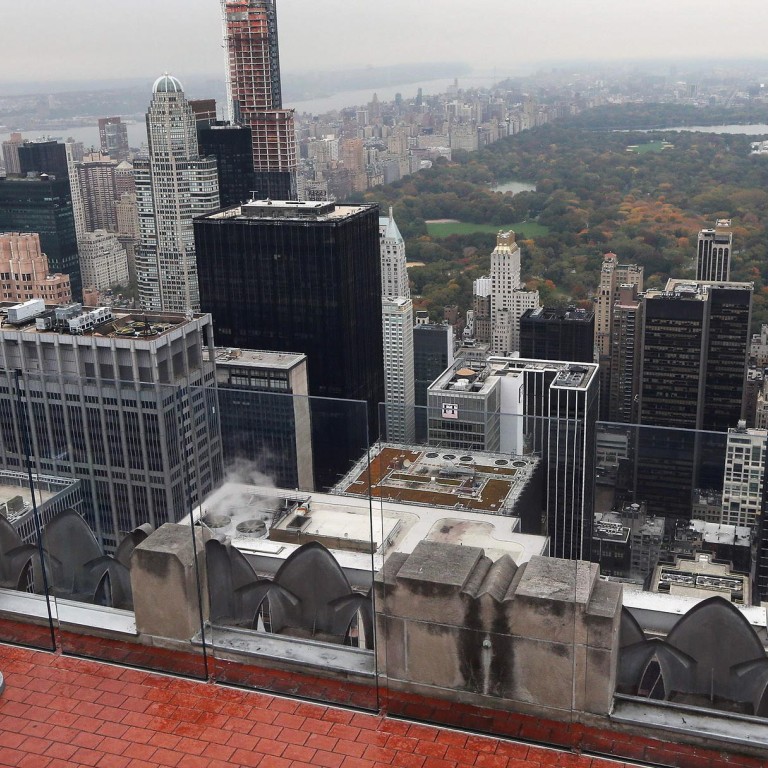
Falling demand and prices force Hong Kong, Singapore developers abroad
Major developers in Hong Kong and Singapore are looking further afield for opportunities, with cooling measures expected to hit home markets
Developers in Hong Kong and Singapore, cities that last year implemented some of their most restrictive curbs to rein in home prices, are shifting their focus to mainland China, the United States and Britain as demand is stifled at home.

Wharf Holdings, the Hong Kong builder of shopping malls and apartment buildings, is expanding in at least 14 mainland Chinese cities and Singapore's Oxley Holdings plans 3,400 homes in London.
Property companies in Hong Kong and Singapore, the most expensive Asian cities in which to buy a luxury residence, are venturing overseas as governments bring in tighter lending restrictions and local mortgage rates are set to rise.
Hong Kong home sales, which fell 38 per cent last year from a year earlier, will remain at similar levels this year, said broker Jones Lang LaSalle.
In Singapore, they may slide 30 per cent after falling about 35 per cent last year, according to brokerage UOB-Kay Hian.
"Asian developers are diversifying into more mature markets. It helps them to tap more sophisticated capital markets and reduce risks," said Nicholas Holt, Asia Pacific research director at Knight Frank in Singapore.
Prime residential properties in the region have been affected by cooling measures, with Hong Kong and Singapore the most impacted, he said.
Singapore began introducing curbs four years ago and some of the strictest measures were implemented last year. They included a cap on debt at 60 per cent of a borrower's income, higher stamp duties on home purchases and a rise in real estate taxes.
Hong Kong has raised the minimum mortgage down payment six times since 2010 and imposed taxes including a doubling of the stamp duty on deals of more than HK$2 million in February, plus an extra 15 per cent levy on non-resident buyers.
The average loan-to-value ratio of new mortgages in Hong Kong was 54.5 per cent in November.
Fourth-quarter home prices in Singapore slid for the first time in almost two years, trimming annual gains to the smallest since 2008, data from the Urban Redevelopment Authority shows.
Home prices in Southeast Asia's fourth-largest economy will start falling this year and may decline by between 5 per cent and 10 per cent, UOB-Kay Hian forecasts.
Asian developers are seeking opportunities as developed economies recover and property prices jump. US home prices rose 13.6 per cent in October from a year ago - the fastest pace in seven years - and in London they rose about 11 per cent from January to November last year, according to the Land Registry.
Meanwhile, Wall Street firms including Goldman Sachs and JPMorgan Chase are seeing a prolonged slump in emerging-market assets that left equities trailing advanced-nation shares by the most since 1998 last year.
Instead of developed economies, some Hong Kong developers are seeking to tap growth on the mainland, where prices have withstood government curbs. More than a dozen cities have tightened their property policies over the past two months. Yet the price of new homes jumped 12 per cent last month from a year earlier, the biggest gain last year, according to SouFun Holdings, the biggest real estate website owner there. Home sales in November were the highest for any month in almost two years.
Wharf will develop a 70,227-square-metre residential site in Hangzhou, Zhejiang province, with Greentown China.
Sun Hung Kai Properties, Hong Kong's second-biggest developer by market value, paid 21.8 billion yuan (HK$27.7 billion) for a site in Shanghai in an auction in September, a record for the city.
The average price of a Hong Kong home has fallen 4.6 per cent since reaching a high in March, according to an index compiled by property agency Centaline.
Prices are expected to fall by as much as 15 per cent this year, said Jones Lang LaSalle.
"Everyone is now more cautious about the impact of rising interest rates and also the possibility of more government curbs," said Joseph Tsang, Hong Kong-based managing director at Jones Lang LaSalle.
"This year, we'll likely see transactions stay low and also more pressure on home prices."
A rebound in property demand in Asia will come in the next few years, said Simon Lo, head of Asia research and advisory at property broker Colliers International in Hong Kong.
"It's too early to say developers in Hong Kong and Singapore are giving up their home markets because of the temporary slowdown in transactions," said Lo.
"There is still demand for new housing in the two cities, especially if you look beyond the next two or three years."
